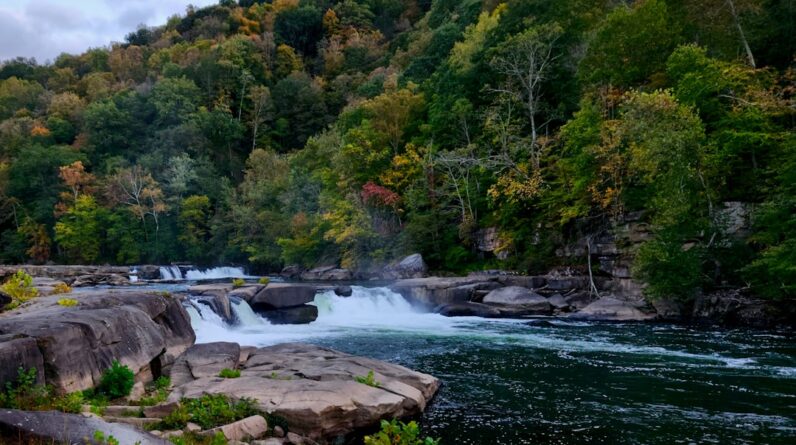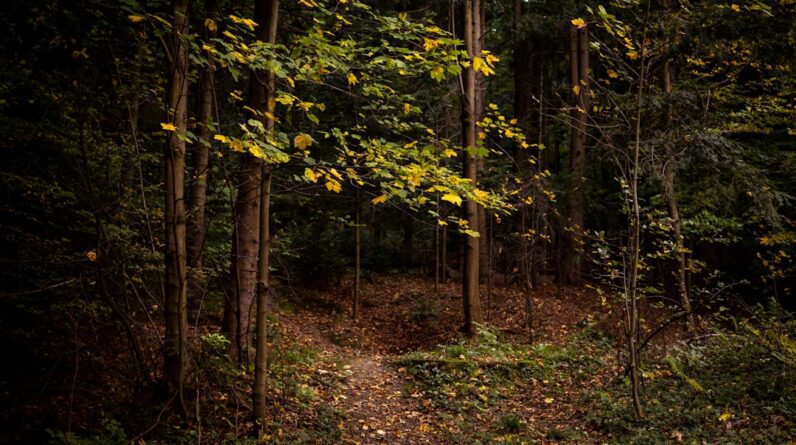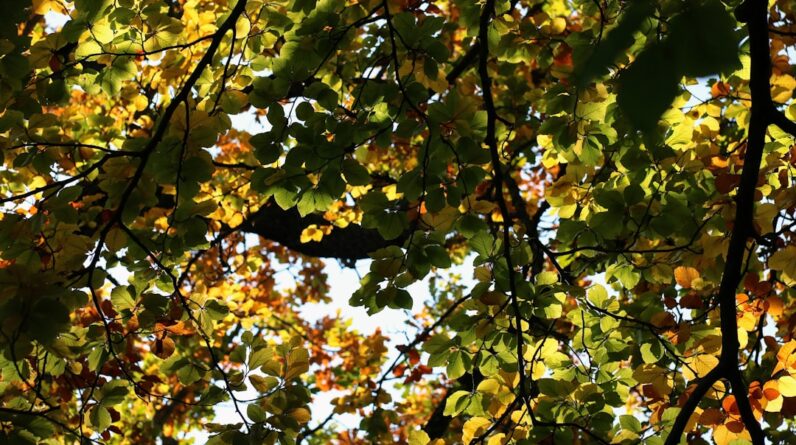Vancouver Island, located off the coast of British Columbia, Canada, is known for its stunning natural beauty and diverse ecosystems. The island is a popular destination for eco-tourism, attracting visitors from around the world who are seeking sustainable travel experiences. Eco-tourism on Vancouver Island focuses on preserving the environment, supporting local communities, and providing educational opportunities for visitors. In this article, we will explore the importance of sustainable travel and highlight some of the top eco-friendly accommodations, outdoor activities, food and drink options, wildlife conservation efforts, transportation options, and community support initiatives on Vancouver Island.
Key Takeaways
- Eco-tourism is a growing trend on Vancouver Island, offering visitors a chance to experience the island’s natural beauty while supporting sustainable travel practices.
- Sustainable travel is important for preserving the environment and local communities, and visitors can make a difference by choosing eco-friendly accommodations and transportation options.
- Top eco-friendly accommodations on Vancouver Island include eco-lodges, glamping sites, and sustainable hotels that prioritize environmental and social responsibility.
- Best practices for eco-friendly travel on Vancouver Island include reducing waste, conserving water and energy, and supporting local businesses and conservation efforts.
- Eco-friendly outdoor activities on Vancouver Island include hiking, kayaking, whale watching, and wildlife tours, all of which offer opportunities to connect with nature and learn about conservation efforts.
The Importance of Sustainable Travel
Sustainable travel refers to responsible travel practices that minimize negative impacts on the environment and local communities while maximizing positive contributions. It involves making conscious choices to reduce carbon emissions, conserve natural resources, support local economies, and respect local cultures. Sustainable travel is crucial for preserving the natural beauty and cultural heritage of destinations like Vancouver Island.
There are several benefits of sustainable travel. Firstly, it helps to protect the environment by reducing carbon emissions and minimizing waste generation. By choosing eco-friendly accommodations and transportation options, travelers can significantly reduce their carbon footprint. Secondly, sustainable travel supports local communities by providing economic opportunities and promoting cultural preservation. When travelers stay in locally-owned eco-friendly accommodations or dine at sustainable restaurants, they contribute directly to the local economy. Lastly, sustainable travel provides educational opportunities for both visitors and locals. By engaging in eco-friendly activities and supporting conservation efforts, travelers can learn about the importance of environmental stewardship and inspire others to do the same.
On the other hand, unsustainable travel practices can have negative impacts on the environment and local communities. Mass tourism can lead to overcrowding, pollution, habitat destruction, and loss of cultural identity. Irresponsible behavior such as littering or disturbing wildlife can also harm ecosystems and disrupt natural processes. Unsustainable travel practices can also exploit local communities by driving up prices, displacing residents, and degrading cultural traditions. Therefore, it is essential to promote and practice sustainable travel to ensure the long-term viability of destinations like Vancouver Island.
Top Eco-Friendly Accommodations on Vancouver Island
Eco-friendly accommodations on Vancouver Island are designed to minimize their environmental impact while providing comfortable and unique experiences for guests. These accommodations often incorporate sustainable practices such as energy and water conservation, waste reduction, use of renewable resources, and support for local communities.
One example of an eco-friendly accommodation on Vancouver Island is the Clayoquot Wilderness Resort. Located in the heart of Clayoquot Sound Biosphere Reserve, this luxury eco-resort offers guests a chance to immerse themselves in nature while minimizing their ecological footprint. The resort operates off-grid and utilizes renewable energy sources such as solar power. It also practices sustainable waste management and supports local communities through employment and sourcing local products.
Another eco-friendly accommodation option is the Tofino Ecolodge. Situated in the coastal town of Tofino, this lodge is committed to sustainability and environmental stewardship. The lodge features energy-efficient design, water-saving fixtures, and organic bedding. It also offers educational programs for guests to learn about local ecosystems and conservation efforts.
Staying in eco-friendly accommodations not only allows travelers to enjoy a unique and environmentally conscious experience but also supports businesses that prioritize sustainability. By choosing these accommodations, visitors can contribute to the preservation of Vancouver Island’s natural beauty and support local communities.
Best Practices for Eco-Friendly Travel on Vancouver Island
While staying in eco-friendly accommodations is a great start, there are several other best practices that travelers can follow to reduce their environmental impact while exploring Vancouver Island.
One tip for eco-friendly travel is to minimize waste generation by bringing reusable items such as water bottles, shopping bags, and food containers. This reduces the need for single-use plastics and helps keep the island’s pristine environment clean. Travelers can also choose to dine at restaurants that prioritize sustainable practices, such as sourcing local and organic ingredients, minimizing food waste, and supporting fair trade.
Another important practice is to respect wildlife and natural habitats. Travelers should observe animals from a safe distance, avoid feeding them, and never disturb their natural behaviors. It is also crucial to follow designated trails and respect protected areas to prevent habitat destruction.
Additionally, travelers can reduce their carbon footprint by choosing eco-friendly transportation options. Vancouver Island offers various sustainable transportation options such as electric buses, bike rentals, and car-sharing services. By opting for these alternatives, visitors can explore the island while minimizing their impact on the environment.
Responsible tourism is another essential aspect of eco-friendly travel. This involves being mindful of local customs and traditions, supporting local businesses, and engaging in activities that promote cultural preservation. By respecting the local community and its heritage, travelers can contribute to the sustainable development of Vancouver Island.
Eco-Friendly Outdoor Activities on Vancouver Island
Vancouver Island offers a wide range of eco-friendly outdoor activities that allow visitors to explore its stunning landscapes while minimizing their environmental impact. These activities focus on conservation, education, and sustainable practices.
One popular eco-friendly outdoor activity on Vancouver Island is whale watching. Several companies offer guided tours that prioritize the well-being of marine mammals and follow strict guidelines to minimize disturbance. These tours provide educational opportunities for visitors to learn about the importance of marine conservation and the challenges faced by these magnificent creatures.
Another eco-friendly activity is hiking in one of the island’s many national parks or protected areas. Travelers can explore trails that are well-maintained and designed to minimize erosion and habitat disturbance. Hiking allows visitors to appreciate the island’s diverse ecosystems while promoting physical fitness and mental well-being.
For those interested in water-based activities, kayaking is a sustainable option that allows travelers to explore Vancouver Island’s coastal waters. Kayaking tours often focus on environmental education and conservation, providing participants with a deeper understanding of the marine environment and its importance.
Engaging in eco-friendly outdoor activities not only allows travelers to connect with nature but also supports conservation efforts and promotes sustainable practices. By choosing these activities, visitors can contribute to the preservation of Vancouver Island’s natural beauty for future generations.
Sustainable Food and Drink Options on Vancouver Island

Vancouver Island is known for its vibrant food and drink scene, with a focus on sustainability and local sourcing. Sustainable food and drink options on the island prioritize organic ingredients, support local farmers and producers, and minimize waste generation.
One example of a sustainable food option is the farm-to-table movement, which emphasizes using locally sourced ingredients in restaurants. Many establishments on Vancouver Island have embraced this concept, partnering with nearby farms to provide fresh and seasonal produce. By supporting these restaurants, travelers can enjoy delicious meals while reducing their carbon footprint.
In terms of sustainable drink options, Vancouver Island is home to several craft breweries and wineries that prioritize environmental stewardship. These establishments often use organic ingredients, implement water and energy conservation measures, and support local farmers. By visiting these breweries and wineries, travelers can enjoy unique beverages while supporting sustainable practices.
Another sustainable food option is the abundance of farmers’ markets on Vancouver Island. These markets provide an opportunity for visitors to purchase fresh produce directly from local farmers. By buying from these markets, travelers can support the local economy, reduce food miles, and enjoy nutritious meals made from locally grown ingredients.
Supporting sustainable food and drink options not only allows travelers to savor the flavors of Vancouver Island but also contributes to the preservation of local ecosystems and supports the livelihoods of farmers and producers.
Wildlife Conservation Efforts on Vancouver Island
Vancouver Island is home to a diverse range of wildlife, including whales, bears, eagles, and salmon. Several organizations and initiatives on the island are dedicated to wildlife conservation and habitat preservation.
One example of a wildlife conservation effort is the Pacific Rim Whale Festival. This annual event celebrates the return of gray whales to the waters off Vancouver Island and raises awareness about marine conservation. The festival includes educational programs, art exhibits, and guided whale watching tours that promote responsible whale watching practices.
Another initiative is the Great Bear Rainforest, located on the central and northern coast of Vancouver Island. This pristine wilderness is home to the rare Kermode bear, also known as the “spirit bear.” The Great Bear Rainforest is protected through a combination of indigenous stewardship, conservation agreements, and sustainable tourism practices. Visitors can support these efforts by participating in guided tours that prioritize environmental education and respect for wildlife.
Additionally, several organizations on Vancouver Island focus on salmon conservation. Salmon are a keystone species in the region, supporting both terrestrial and marine ecosystems. Efforts to protect salmon populations include habitat restoration, fish hatcheries, and educational programs. Travelers can learn about these initiatives and support them through guided tours or by visiting interpretive centers.
Supporting wildlife conservation efforts on Vancouver Island is crucial for preserving the island’s unique ecosystems and ensuring the survival of its iconic species. By participating in eco-friendly activities and supporting responsible tourism practices, travelers can contribute to these efforts.
Eco-Friendly Transportation Options on Vancouver Island
Vancouver Island offers several eco-friendly transportation options that allow visitors to explore the island while minimizing their carbon footprint. These options include public transportation, cycling, and electric vehicle rentals.
One sustainable transportation option is the BC Transit system, which operates buses throughout Vancouver Island. BC Transit has made efforts to reduce its environmental impact by incorporating hybrid and electric buses into its fleet. Travelers can use these buses to navigate between cities and towns on the island, reducing the need for private vehicles.
Cycling is another popular eco-friendly transportation option on Vancouver Island. The island features numerous bike-friendly routes and trails, allowing visitors to explore at their own pace while enjoying the fresh air and scenic views. Bike rentals are available in many towns, making it easy for travelers to access this sustainable mode of transportation.
For those who prefer private transportation, electric vehicle (EV) rentals are becoming increasingly popular on Vancouver Island. EV rentals allow visitors to explore the island while minimizing their carbon emissions. Several rental companies offer EVs, making it convenient for travelers to choose this eco-friendly option.
By opting for eco-friendly transportation options, travelers can reduce their carbon footprint and contribute to the preservation of Vancouver Island’s natural beauty.
Supporting Local Communities through Eco-Tourism on Vancouver Island
Eco-tourism plays a vital role in supporting local communities on Vancouver Island. By choosing sustainable travel experiences, visitors can contribute directly to the local economy and help preserve the cultural heritage of the island.
One way eco-tourism supports local communities is through job creation. Eco-friendly accommodations, tour operators, and restaurants often prioritize hiring local residents, providing employment opportunities and supporting the local workforce. By staying in these accommodations and participating in eco-friendly activities, travelers can directly support the livelihoods of community members.
Eco-tourism also promotes cultural preservation by encouraging visitors to engage with local traditions and customs. Many eco-friendly accommodations offer cultural experiences such as indigenous storytelling or traditional craft workshops. By participating in these activities, travelers can learn about the rich cultural heritage of Vancouver Island and support the continuation of these traditions.
Furthermore, eco-tourism often involves partnerships with local businesses and suppliers. Eco-friendly accommodations and tour operators prioritize sourcing products and services from nearby communities, supporting local farmers, artisans, and producers. By choosing these businesses, travelers can contribute to the economic sustainability of Vancouver Island’s communities.
Supporting local communities through eco-tourism is essential for ensuring their long-term viability and preserving the unique cultural identity of Vancouver Island.
The Future of Eco-Tourism on Vancouver Island
The future of eco-tourism on Vancouver Island looks promising, with a growing emphasis on sustainability and responsible travel practices. As travelers become more conscious of their environmental impact, there is an increasing demand for eco-friendly accommodations, activities, and transportation options.
To ensure the continued success of eco-tourism on Vancouver Island, it is crucial for travelers to support sustainable businesses and practices. By choosing eco-friendly accommodations, engaging in responsible outdoor activities, supporting sustainable food and drink options, and participating in wildlife conservation efforts, visitors can contribute to the long-term preservation of the island’s natural beauty.
Furthermore, continued support for local communities is essential. Travelers can choose to stay in locally-owned accommodations, dine at sustainable restaurants, and purchase products from local artisans. By doing so, they can help sustain the local economy and preserve the cultural heritage of Vancouver Island.
In conclusion, eco-tourism on Vancouver Island offers visitors the opportunity to explore its stunning landscapes while minimizing their environmental impact and supporting local communities. By practicing sustainable travel and engaging in eco-friendly activities, travelers can contribute to the preservation of the island’s natural beauty and cultural heritage. It is essential for both visitors and locals to prioritize sustainability and responsible tourism practices to ensure the long-term viability of eco-tourism on Vancouver Island.
If you’re interested in sustainable travel experiences, you might also enjoy reading our article on “The Transition Journey: Managing Menopause with Ease.” Menopause is a natural phase of life that can bring about various physical and emotional changes. In this article, we explore strategies and tips for navigating this transition with grace and ease. From understanding the symptoms to incorporating healthy lifestyle habits, this article provides valuable insights for women going through menopause. Check it out here.








